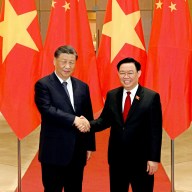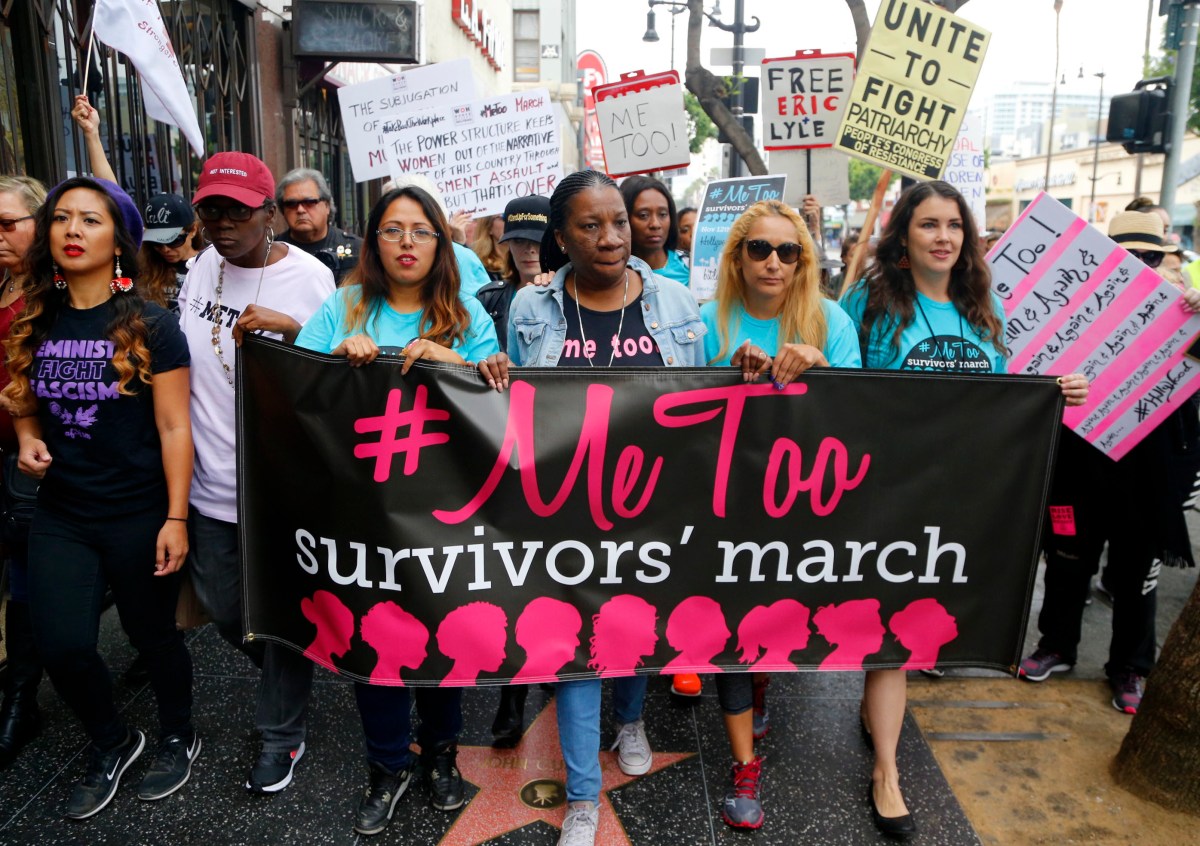 Baruch Herzfeld, founder of Zeno Radio, in his office. Credit: Bess Adler
Baruch Herzfeld, founder of Zeno Radio, in his office. Credit: Bess Adler
Homesick immigrants have a champion in Baruch Herzfeld, the brains behind Zeno Radio.
Herzfeld started out with one little radio show and a phone card business, and somehow ended up with Zeno Radio, a massive operation involving nearly 3,000 phone numbers connecting U.S.-based listeners to radio programs in around 30 countries around the world.
“How did I know how to do that? I don’t know, why do I know how to do some things and not others?” Herzfeld asked. “Why doesn’t my wife let me touch any of the tools in the house? Some people have crazy ideas.”
Herzfeld is certainly one of those people. From the “Brooklyn kibbutz” that was the Bushwick Trailer Park to a “non-kosher bike shop” in South Willamsburg that lent free bikes to Hasids to encourage exploration beyond their Williamsburg enclave, to an app conceived with his rabbi brother to prevent observant Jews from having to throw away all leavened grain-based products before Passover, Herzfeld has had crazy ideas all over the city for years.
Zeno Radio, however, seems to be his most serious and sustainable one yet.
Zeno Radio assigns phone numbers to radio channels from all over the world. The logic is that everyone has unlimited voice minutes now, but data plans are still very expensive and monthly allotments are easily exceeded, which means streaming radio is not a viable long-term method. Assigning U.S. phone numbers to specific broadcasts allows users to call in and stay connected for however long they like — an entire taxi shift, for example — at no significant added cost.
While the service is accessible nationwide, Herzfeld estimates 70 percent of its listeners are in New York, probably because that is where their offices are. But Herzfeld says they’re planning to expand.
“We have a lot of people that are very excited about it,” he said.
Herzfeld said it’s sometimes difficult to be excited when business picks up, because it’s often a sign of strife in their listeners’ home countries. In October, he noticed a huge bump in listeners to their Jamaican radio stations.
“Then I realized: They’re all worried about Hurricane Sandy,” Herzfeld said.
He saw the same spike in listeners to Egyptian radio stations a few weeks ago.
Trends aren’t necessarily always the result of political turmoil, however: Sometimes he’ll notice a spike in listeners for a certain country or station at a specific time, and he’ll learn that a certain news program or sports coverage runs at that time. When that happens, Herzfeld reaches out to the broadcasters to ask if they would like to make a recording of the live show and that can be rerun later for people who couldn’t listen in real time.
While many of the broadcasts come from overseas — Senegal, Mali, Guatemala, Brazil and Peru are just a handful of the dozens of countries Zeno Radio connects with — Herzfeld also provides services, support and occasional sponsorship for programs out of those communities here in the U.S.
Herzfeld said they are looking to hire more people from these and other communities — ideally journalists, he said, people involved or in touch with the political activities back home and capable of delivering that information to their peers here. He wants to bring on more people like Boubacar Ba, the person in charge of the French-language West African content for Zeno Radio. Boubacar also has his own community radio show that he volunteers for once a week.
“But he doesn’t do it for money,” Herzfeld said. “He does it because he loves his culture.”
Standing outside the Masjid Ar-Rahman mosque on 29th Street in Manhattan around midday, Herzfeld cheerfully said “Ramadan Mubarak” to all the people rushing by on their way to prayer while Boubacar went inside. These are his people, he explains affectionately: These are the people Zeno Radio was made for.
“I’m so honored to help them keep in touch with their culture,” Herzfeld said.
As a police officer peered at the windshield of an illegally parked taxi, Herzfeld shouted over to him: “Don’t ticket the guys who are going to pray!”
The officer looked over and Herzfeld shouted again: “They’re praying, don’t ticket them!”
The officer paused, glancing over at the mosque. “Be careful,” Herzfeld urged. “They’re all praying here.”
Nodding, the officer walked away.
Follow Danielle Tcholakian on Twitter @danielleiat
















